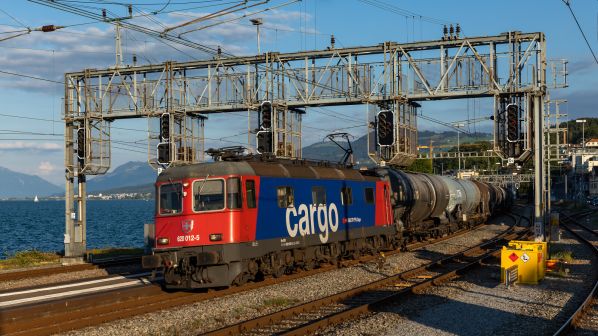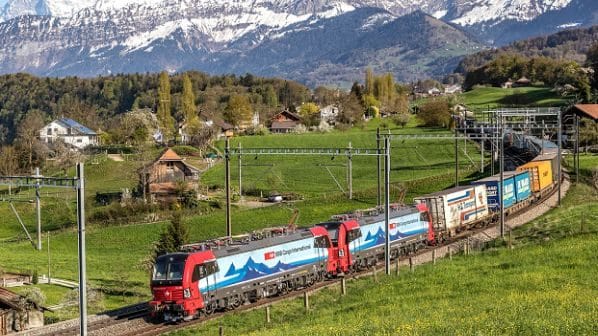SWISS Federal Railways (SBB) has purchased the 35% stake in SBB Cargo held by Swiss Combi, making the company a 100%-owned subsidiary of SBB once again.
SBB says the move supports its ambitions to grow rail freight and to manage these activities at a group level from a single point, reinforcing the Swiss Cargo Logistics concept launched in autumn 2022, which aims to increase freight traffic by 60% by 2050. Swiss Combi will remain a strategic partner to SBB. The cost of the acquisition has not been disclosed.
Mr Alexander Muhm, the current head of SBB Real Estate, who has sat on SBB’s group executive board since 2019, has been appointed as the new member of the group executive board responsible for freight as well as the new CEO of SBB Cargo.
Muhm was the board member responsible for shaping the Swiss Cargo Logistics concept, and in his new role will be responsible for all of SBB’s freight subsidiaries, including the newly-established SBB Intermodal. This SBB subsidiary aims to build new terminal infrastructure across Switzerland, including five intermodal terminals between Geneva and St Gallen.
SBB says the move simplifies its management structure - the previous head of the freight segment had a coordinating role and was not a board member.
Sole ownership of SBB Cargo is also deemed necessary to improve rail freight’s cost-effectiveness and competitiveness. SBB says that wagonload freight cannot be operated cost-effectively in its current form as it does not meet the federal government's requirements for economic self-sufficiency. Yet rail freight is deemed as making a significant contribution to the security of supply, a functioning economy and society as well as climate change targets. As a result, the Federal Council has presented proposals for how rail freight can be sustainably strengthened, including the introduction of state subsidies to support single wagonload traffic, with the Swiss Federal Parliament set to decide on these proposals shortly.
Muhm will take up his new position on June 26 and replaces Ms Désirée Baer, who has led SBB Cargo since 2020. SBB says that during Baer’s tenure, SBB Cargo’s customer and employee satisfaction has increased substantially while quality and productivity have improved. SBB says Baer has decided leave the company following the change.
Swiss Combi is owned by logistics service providers Planzer Holding (40%), Camion Transport (40%), Bertschi (10%), and Galliker Holding (10%). SBB says the partners have contributed valuable knowledge from the transport and logistics sector to SBB Cargo over the last three years. SBB hopes that the change in corporate structure will enable these companies to continue to support the modal shift policy and the further development of SBB’s wagonload services. The railway also says it is also open to other strategic partnerships.
SBB’s rail freight subsidiaries
SBB Cargo: Responsible for 14.3% of Switzerland’s total freight transport volumes. Its wagonload, block trains and intermodal services carry 180,000 tonnes of freight a day, taking 15,000 lorries off Swiss roads and eliminating 490,000 tonnes of CO2 emissions every year.
SBB Cargo International: The market leader on the north-south transit corridor axis through the Swiss Alps, according to SBB. Its block trains connect North Sea ports with Italy's most important economic hubs. SBB holds a 75% stake and Hupac 25%.
SBB Intermodal: This newly-established subsidiary will drive forward the expansion of terminal infrastructure in Switzerland, as envisaged under the Swiss Cargo Logistics concept.


